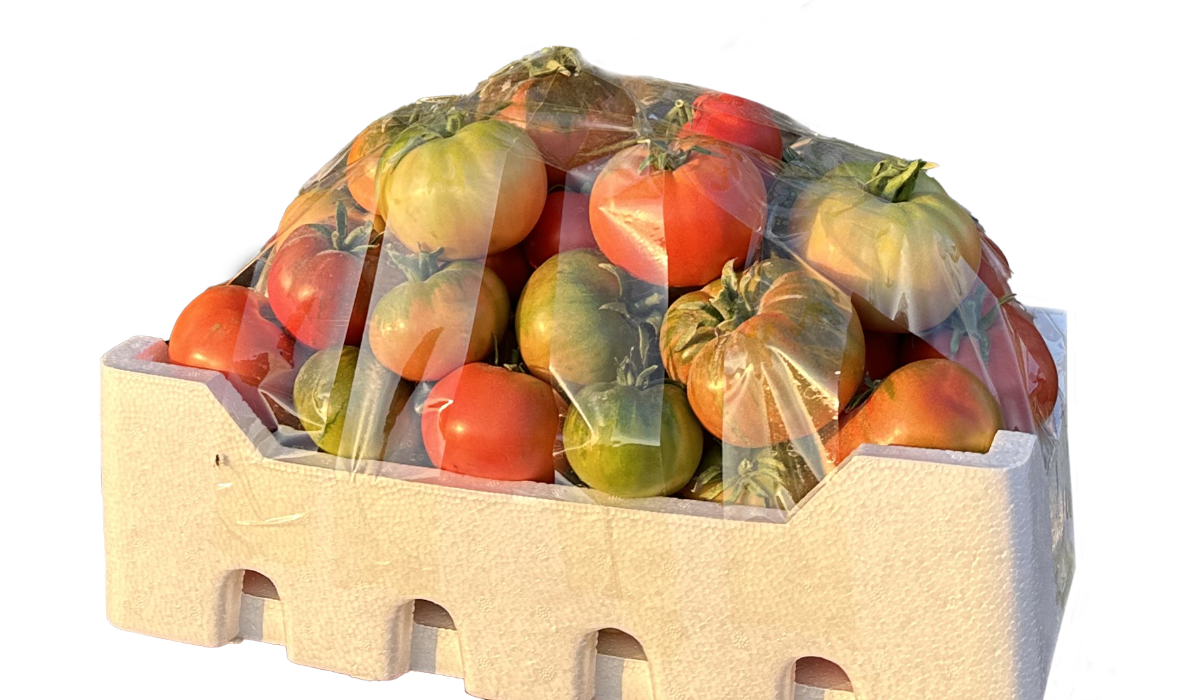DHAHRAN: Nestled in the Eastern Province of the Kingdom, Qatif is celebrated for its fertile soil, inviting climate, and rich agricultural heritage.
One of the region’s most prized crops is the Ramsi tomato, which is native to Saudi Arabia.
It is also the main product of Mohammad Al-Ghawy’s Ramsi Tomato Farm, which spans 45,000 sq. meters in Al-Awamiyah and produces other seasonal delights including local watermelon and cantaloupe.

Ramsi tomatoes have been a staple in Qatif for centuries due to the region’s significant role as a major agricultural producer. (AN photo by Hind Alkhunaizi)
The succulent tomatoes are celebrated nationwide for their vibrant color, firm texture, and sweet-tangy flavor.
They are grown using traditional farming methods, which involve careful nurturing and attention to detail.
Saeed Sulail, a farmer from Qatif, told Arab News: “In terms of the harvest, the growing season lasts for more than three months, from December to the beginning of April.”
FASTFACTS
• The succulent tomatoes are celebrated nationwide for their vibrant color, firm texture, and sweet-tangy flavor.
• Despite their popularity, production faces challenges, including climate change, desertification, water scarcity, and soil degradation.
He added: “If we add the duration of planting seeds and nurseries (the greenhouses), it is approximately eight months. The soil in Qatif is enriched with nutrients and minerals that foster robust growth.”
He highlighted the importance of proper fertilization. “These are the industrial fertilizers that trees and plants need to grow well, but they must be in specific ratios for each stage of the plant’s life.”
The result of this labor of love is a delicious product packed with nutrients and antioxidants.
Ramsi tomatoes have been a staple in Qatif for centuries due to the region’s significant role as a major agricultural producer. Their popularity has spread throughout the Kingdom, making them a staple in many Saudi households.
Today, Qatif remains the primary producer of Ramsi tomatoes, with many local farms dedicating their land to their cultivation. Ramsi tomatoes hold a special place in Saudi culture, particularly during the summer months when they are in season.
They are often served as a refreshing side dish, sliced and dressed with olive oil, salt and pepper.
In many households, Ramsi tomatoes are used in traditional dishes including salads, stews and sauces, as well as the famous Saudi Arabia dish, Kabsa, which consists of meat, spices and vegetables.
Despite their popularity, production faces challenges, including climate change, desertification, water scarcity, and soil degradation.
Local farmers and authorities are working together to implement sustainable farming practices, such as drip irrigation and crop rotation.































